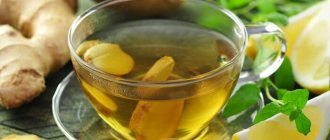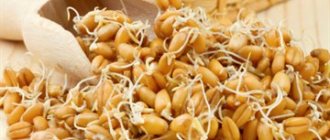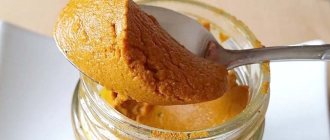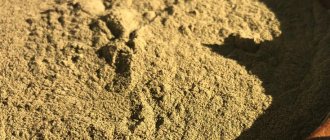What affects immunity
Since immunity is a complex of reactions of the entire body to protect against external invasions, its functioning is influenced by many factors. This may include:
- dream;
- chronic stress;
- physical activity;
- diet;
- psychological mood;
- ecological situation;
- medications;
- bad habits (smoking, alcohol);
- chronic diseases;
- genetic characteristics;
- infectious diseases;
- radiation.
All these factors influence immunity in combination. If some exposure is excessive and the body cannot cope with it within the limits of a normal reaction, malfunctions may occur, which also lead to a decrease in immunity. For example, short, controlled stress in the form of hardening, training, or a certain period of fasting will stimulate the body and help strengthen the immune system.
If stress is chronic, for example emotional, it leads to exhaustion of the nervous system, imbalance of hormonal levels and, naturally, affects the immune system. Thus, studies have shown that after chronic stress upon contact with a virus, such as ARVI, these people developed severe symptoms such as weakness and nasal discharge. In the other group, without exposure to stress, these symptoms were minimal or absent.
A significant portion of bacteria and viruses enter the body through the digestive system. If the work of enzymes, acidity, microflora is disrupted, the permeability of the intestinal wall is increased, there are inflammatory processes, local immunity is weakened, then the protective function may decrease and foreign agents may enter the blood.
A significant portion of bacteria and viruses enter the body through the digestive system.
Hormonal drugs, bad habits, and infections can weaken the immune system. We often forget about such an important element of health as sleep. Lack of sleep and sleep disturbances can also reduce the body's defenses.
What is a weakened immune system?
A weakened immune system due to various reasons can lead to poor health. Therefore, doctors urge you to carefully monitor your well-being and not ignore the alarm signals sent by our body.
Knowing what a weakened immune system is, as well as taking timely measures to strengthen it, can reduce the risk of developing serious diseases, as well as prolong life.
Important to know: Have you suddenly gained or lost weight for no apparent reason? Have you developed an allergy that manifests itself in the form of a runny nose or skin rashes? Is the skin on your face dry and flaky, and your hands red and cracking? It is likely that the reason for this was a sharp decrease in immunity. Instead of swallowing pills, you should see a doctor, get examined and restore your immune system.
How to increase the immunity of an adult? You can strengthen it at any time of the year, during work and on vacation. The main thing is to act purposefully and methodically, following all the doctor’s recommendations. You should not make a diagnosis yourself or draw premature conclusions about the current state of the immune system. Only specialists know how to correctly assess the patient’s health status and what tests should be carried out (laboratory blood tests, initial screening to test immune functions, allergy tests, etc.).
Having carefully studied all the factors and the patient’s current state of health, the doctor will give a number of tips on how to increase immunity in an adult. All of them are simple and accessible, do not require large expenses and special efforts.
Immunity disorders
Changes in the functioning of the immune system can be divided into 2 types:
- The first is when its function is reduced and it cannot cope with protecting the body from external attacks.
- And second, when its response is disrupted, excessive and goes beyond the normal response, then allergic and autoimmune reactions can develop.
In the second case, inflammatory processes are launched that damage the body’s own tissues. We are talking about problems such as:
- atopic dermatitis;
- bronchial asthma;
- allergic rhinitis;
- rheumatic diseases.
Let us examine in more detail the situation of decreased immunity.
Signs of a weakened immune system
Here are the most common symptoms of a weakened immune system that can be noticed even before visiting a doctor:
- Severe fatigue, decreased performance.
- Drowsiness, lethargy, apathy. At the same time, a drowsy state that is present throughout the day can be replaced by insomnia at night, which unsettles a person.
- Lack of appetite.
- Decreased visual acuity.
- Impaired coordination of movements.
- Changes in the color and condition of the skin (rash on the lips, pimples on the face, “stubs” in the corners of the lips, etc.).
- High susceptibility to colds. The slightest hypothermia - and you have to treat a runny nose or cough.
Causes of weakened immunity
Most adults note that the weakening of the immune system occurs in the autumn-winter season. Here are the most common causes of weakened immunity, according to doctors:
- Lack of vitamins and microelements that are of particular value to the body.
- Lack of oxygen and sunlight.
- Decreased mobility.
- Consumption of refined foods.
- Malfunctions of internal organs.
- Accumulation of waste and toxins inside the body.
- Lack of proper rest.
- Frequent stress and burnout at work.
- Insufficient thermoregulation, etc.
Here are a few typical situations demonstrating the reasons for decreased immunity:
- A person does not take timely dental treatment. Because of this, the process of chewing food worsens. When it enters the stomach, it is poorly broken down and digested slowly. As a result - metabolic disorders, problems with the stomach and intestines, as well as decreased immunity.
- A person lives in a tight schedule. Getting up early, getting ready for work at an accelerated pace, long working hours, solving many personal and family problems in parallel. Plus poor nutrition and grueling workouts in the gym (“to stay in shape”). Physical activity is quite high, but it leads to overload, against the background of which immunity decreases, and a person becomes vulnerable to disease.
Experienced RP doctors will tell you how to quickly increase the immunity of an adult, and what means will be required for this. This will be useful not only for those who want to maintain health, but also for people who have recently recovered from serious illnesses.
The main enemies of your health, or what causes immunity to decrease
Do you want to find out what causes your immune system to weaken? Knowing the main reasons leading to its decrease, many seasonal exacerbations of chronic diseases can be prevented in advance.
Here are the main enemies of your health that can lead to weakened immunity in adults:
- Chronic lack of sleep. Living in a frantic pace leads not only to a weakened immune system, but also to other problems: for example, accelerated weight gain.
- Abuse of sugar. We are talking about white sugar, which contains large amounts of carbohydrates, as well as baked goods and confectionery products. The body of a sweet tooth has to endure a kind of “stress” after exceeding the daily norm (100 g) of sugar. Over the next few hours, resistance to viruses and bacteria drops by almost half. To stop this trend, nutritionists recommend revising your menu, replacing white sugar with brown sugar, and also using natural honey and dried fruits.
- Dehydration. Lack of fluid causes a feeling of extreme fatigue and also negatively affects the state of the immune system.
- Drying of the mucous membrane of the nasopharynx. One of the common reasons for weak immunity in the winter season, when there is a lack of moisture outdoors and indoors. Bacteria that enter the dry mucous membrane of the nose or throat penetrate the blood faster. Therefore, during the cold season, people are more likely to get colds.
- Prolonged stress. In such conditions, the body is forced to work to the limit, which weakens the immune system.
Good to know: many people confuse hardening with strengthening the immune system. In fact, these are different things. Hardening helps the body get used to sudden temperature changes and develop resistance to cold. Recommendations on how to increase the immunity of an adult concern strengthening the body’s defense system as a whole.
Low immunity
How do you understand that your immune system is weakened and you need to do something urgently? Many people have heard the concept of children with frequent illnesses. Parents count the number of ARVIs per year and if it exceeds 4 times they begin to worry. But WHO considers the number 8 to be the norm for children attending kindergarten and primary schoolchildren, if it is a common cold.
Both children and adults should be wary of:
- prolonged otitis, sinusitis;
- frequent bacterial infections;
- recurring sore throats;
- pneumonia;
- identification of atypical pathogens (fungi, certain viruses).
Problems with immunity can be congenital, associated with genetic characteristics, or acquired, that is, arising during life.
What to do
It seems that if immunity is low, it urgently needs to be increased. Fortunately, in the pharmacy you can find many immunomodulators with the promise of making the immune system stronger. Before swallowing pills, you may want to pay attention to risk factors. After all, without eliminating them, improvements can only be temporary. It will be like hitting your finger with a hammer, but each time you apply medicinal ointment. Maybe I should put the hammer away first.
Before swallowing pills, you may want to pay attention to risk factors.
- Hidden infections. Often, a hidden source of infection may be present in the oral cavity in the form of untreated teeth or cysts hiding under the teeth. Regular medical examination and sanitation of the oral cavity are necessary.
- Chronic diseases. Untreated diabetes mellitus can lead to the development of ulcers and their infection on the lower extremities, and to poorly healing wounds. Without treating the underlying disease, no immunomodulators will help.
- Hygiene rules. Washing your hands before eating, washing fruits, vegetables, drinking boiled water are commonplace tips, but many do not follow them. If you ignore them, it’s easy to get sick with an intestinal infection while on vacation in warm countries.
- Lifestyle. Try to reduce stress, develop a regular daily routine, and eat regularly. This will help normalize the biological clock and also help the immune system.
Few people manage to follow all the recommendations, so I want to resort to the achievements of modern science.
Drugs
Only those products that directly modulate, that is, directly act on some parts of the immune system, can be classified as immunomodulators. Ideally, they should bring it back to normal. All the rest, such as vitamins, dietary supplements, adaptogens, can have an effect on the immune system, but calling them immunomodulators is not entirely correct.
Immunomodulators
An ideal immunomodulator that, when taken, would normalize all parts of the immune system does not yet exist. Today, real immunomodulators include:
- Immunomax;
- Galavit;
- Lycopid.
These molecules act on specific parts of the immune chain and their actions are relatively unknown.
Lysates
A group of drugs that are fragments of bacteria, up to several dozen species. The drugs are available in the form of tablets and nasal sprays. Once in the body, they “awaken” immune cells and put them on alert. This increases the resistance of mucous membranes to the penetration of bacteria and viruses, especially during infections. Medicines:
- IRS-19 (spray);
- Imudon;
- Bronchomunal.
Vitamins and microelements
Vitamin D has a very wide spectrum of effects on the entire body, and not just on the condition of bones and muscles. If we consider its effect on the immune system, then here it helps to relieve inflammation by blocking the interaction between immune cells. With its deficiency, the risk of autoimmune diseases (rheumatoid arthritis, systemic lupus erythematosus, type 1 diabetes) increases. Vitamin D has immunomodulatory properties and can enhance humoral and cellular immunity. There are water- and fat-soluble forms of cholecalciferol. If digestion is disrupted, its absorption may be impaired.
Vitamin D has a very wide spectrum of effects on the entire body.
Preparations:
- Solgar Vitamin D3;
- Natures Bounty Vitamin D3;
- Vitamin D3;
- Vitateca vitamin D3;
Vitamin C has a stimulating effect on the immune system. Under its influence, neutrophils increase their ability to recognize and destroy bacteria and viruses. Ascorbic acid is needed for the synthesis of endogenous interferons and cytokines. The combination of vitamins A, C and zinc stimulates the production of antibodies.
- Solgar Vitamin C 500 mg Raspberry Flavor;
- Solgar Ester-C plus Vitamin C 500 mg.
Zinc is involved in processes affecting the synthesis of T-lymphocytes and stimulates the phagocytic activity of neutrophils. There are no reserves of zinc in the body; it must be supplied with meat, legumes, and cheeses.
- Solgar Flavo-zinc;
- Natures Bounty Zinc Chelate 25 mg;
- Solgar Zinc Picolinate.
Combination drugs
Many vitamins and minerals have a synergistic effect. If there is a deficiency of one, taking a mono drug may be ineffective. To achieve this, manufacturers produce complex, balanced products:
- Natures Bounty Calcium Magnesium Zinc;
- Solgar Calcium-Magnesium with Vitamin D3;
- Vitamin C plus zinc.
dietary supplements
Typically, dietary supplements include various extracts from herbs with an adaptogenic effect. They are often combined with vitamins.
- Vitamin C 500 mg plus Echinacea;
- Vitamin C and rosehip.
Dietary supplements include various extracts from herbs with an adaptogenic effect
Interferons
This group of drugs is also very common in Russia and the post-Soviet space. Western colleagues do not share our optimism regarding the use of this group of drugs and use it in rare cases for certain diseases. But not for ordinary people with symptoms of ARVI, and especially not for prevention.
Our market offers:
- Grippferon;
- Ingaron;
- Viferon;
- Arbidol.
How to boost immunity?
Try to change your lifestyle and eliminate all the factors described above, that is, normalize your diet and sleep, and, if possible, give up smoking and alcohol. Take care of improving the microclimate - install fresh air ventilation devices with an air purification function that thoroughly remove bacteria, viruses, allergens and other pollutants, maintain proper humidity in the room using dehumidifiers or humidifiers, do not open windows during smog. Drink more clean water, and drink coffee and juice in moderation (the first can cause depression of the nervous system, the second can increase stomach acidity and blood sugar levels)
Sport
If there are no contraindications, start playing sports. Exercise, yoga or jogging in the morning will improve your mood and “wake up” the body, and fitness and swimming 2-3 times a week will increase your overall endurance.
Hardening
How else to strengthen the immune system of an adult? Try to harden yourself. Just don’t immediately douse yourself with ice water or take a contrast shower; just start with air baths, walking barefoot on the floor, and washing your face with cool water. If the attending physician does not identify any contraindications, visit the bathhouse to improve blood circulation, remove toxins and improve overall health.
Taking vitamins
There are five main types of vitamins that stimulate the formation of the correct immune response.
Retinol (A). Activates the synthesis of interleukins proteins, which help increase the number of T-helpers and T-killers - cells that recognize foreign particles (antigens), enhance the response and destroy them. Retinol has a beneficial effect on vision, heart and blood vessels. Contained in carrots, hawthorn, basil, butter
Group B. B2, B6 and B12 are especially influential. Unlike retinol, they also increase the production of B-lymphocytes, which directly produce antibodies (immunoglobulins - proteins that recognize and destroy specific antigens) and transform into memory cells, which, the next time they encounter a pathogen, activate the rapid synthesis of immunoglobulin to fight. These adult vitamins for immunity can be obtained from legumes, liver, eggs, milk.
Ascorbic acid (C). Take at the first sign of a cold and for prevention. Contained in citrus fruits, sauerkraut, currants, tomatoes, spinach. Increases the production of interferon and antibodies, activates macrophage cells that absorb antigens, and helps remove toxins from the liver. At temperatures above +60˚C, most of the vitamin C is destroyed, so you should not pour boiling water over the lemon, it will not bring any benefit.
What is the difference between antibodies and interferon? The former are produced in response to a specific pathogen, the latter fights all pathogens equally. Interferon is produced even if we first encounter a foreign substance, antibodies - only after the first contact. Vaccines are necessary for the targeted production of antibodies against a specific pathogen, so seasonal flu vaccination does not help with Covid-19 - these are different viruses.
Calciferol (D). An important vitamin for the immune system, strengthens it and improves the correct functioning of all links. It is synthesized in the skin under the influence of the sun, and also comes with food: fish, cottage cheese, eggs, algae.
Tocopherol (E). Increases antioxidant protection (prevents cell destruction), activates the production of antibodies and inhibits the development and proliferation of tumor cells. Contained in nuts and vegetable oil.
Vitamin complexes are taken in courses over 1–3 months; a single dose is not enough
Traditional methods
If you are looking for how to increase the body's immunity using traditional methods, first consult your doctor, as the products used in the recipes may provoke allergies or other undesirable reactions. Let's talk about the most popular and simple folk remedies.
Ginger root. It is grated on a fine grater, combined with honey, lemon juice and dried apricots. Eat 2-3 spoons a day.
Seasonings. Cinnamon, pepper, turmeric and bay leaf have a positive effect.
Garlic and onion. The phytoncides they contain reduce the risk of viruses and microbes entering through the respiratory system.
Aloe juice. Mix in equal proportions with honey to reduce the bitter taste. The mixture is prepared day after day, since after a day the beneficial substances lose their properties.
Soothing decoctions. Helps reduce stress and normalize sleep.
Infusions of medicinal herbs. Popular ones include echinacea, eleutherococcus, licorice, ginseng, etc. These herbs help improve blood circulation, increase tone and relieve stress.
Healthy foods
If you do not want to take immunity pills, adults and children can get the necessary vitamins and minerals from food. Before taking, make sure there are no allergic reactions.
Honey. Contains a large number of useful microelements, including ascorbic and folic acids, tocopherol, retinol, flavonoids (enzyme activators).
Nuts. The composition includes Omega-3 fatty acids, magnesium, calcium, potassium and other beneficial microelements. Nuts can reduce the risk of plaque formation in blood vessels, atherosclerosis, and heart disease.
Dairy products with probiotics. Kefir, fermented baked milk and acidophilus have a positive effect on digestion and elimination of toxins.
Berries. Raisins, grapes, rose hips and chokeberries help lower cholesterol levels, increase the elasticity of the walls of blood vessels, and can have a positive effect on the heart.
Vegetables>. It has been proven that red bell peppers contain five times more ascorbic acid (250 mg) compared to oranges (50 mg), and also contain provitamin A. Other foods for immunity: broccoli, green bell peppers, cauliflower and white cabbage, etc. d. Seafood. Shrimp, mussels, crayfish and crabs contain selenium and zinc - important substances for supporting the immune system.
Seafood. Shrimp, mussels, crayfish and crabs contain selenium and zinc - important substances for supporting the immune system
Taking medications
Medications, including dietary supplements, should be taken only under the supervision of a physician. You shouldn’t go to the pharmacy and ask what to drink to boost immunity for an adult - each of us is individual. Just as hypovitaminosis (lack of vitamins) negatively affects health, uncontrolled use of medications can contribute to the suppression of protective cells instead of their activation. Depending on the identified problem, the doctor may prescribe:
- immunomodulators. Restore the functioning of the immune system by activating or inhibiting it;
- immunocorrectors. These are immunomodulators of targeted action, they work with a specific link that requires adjustment;
- immunostimulants. Drugs to enhance immune defense, enhance the speed and quality of the reaction;
- immunosuppressants. Medicines to suppress the immune response are usually prescribed after transplantation or implantation.










